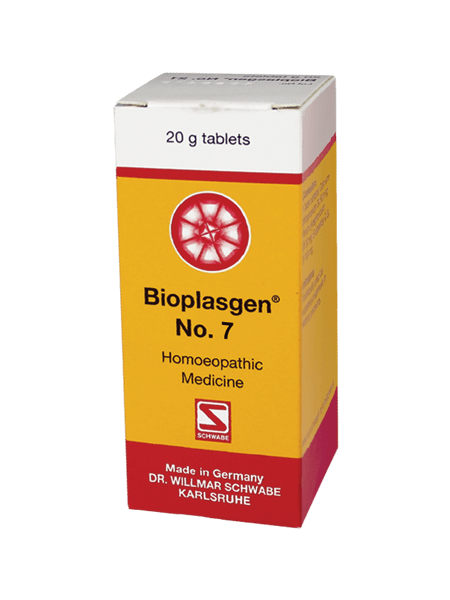Composition
Each tablet of 104mg contains Calcium phosphoricum 3x 20mg, Ferrum phosphoricum 3x 20mg, Kalium phosphoricum 3x 20mg , Natrium phosphoricum 3x 20mg, and Natrium sulfuricum 3x 20mg.
Indications
Increased micturition (passing of urine), pain in calves, thirst, dry lips, sleeplessness, nervous prostration. In chronic cases with liver disorders, recommended as a remedy to support patients state of health by assimilating the glucose. The kidney and nerve functions impaired by diabetes are improved.
DIABETES
It is a disorder of carbohydrate metabolism due to deficiency of internal secretion of the pancreas, insulin, and is associated with rise of sugar content of the blood and appearance of sugar in the urine. Earlier it was considered as a breakdown of body’s insulin-glucose economy. Lately, much study has been done and the role or intervention by medication at appropriate level and stage is being appreciated.
CAUSES OF DIABETES
There are many points in the sequence of events between insulin synthesis and release, its clearance and action, and glucose uptake by the various organs, where abnormality or biochemical fault may upset the normal balance and produce the diabetic state. With advancing years, protein synthesis is generally slowed down and this also applies to insulin production. It is not surprising therefore that recent studies show a high prevalence of hyperglycaemia (up to 50 per cent) among the elderly. The close correlation between obesity and diabetes indicates that under-exercise and the deposition of adipose tissue lead to a breakdown in the body’s insulin-glucose economy despite normal or over-production of insulin by beta cells. In young-diabetics there seems to be an idiopathic failure of beta cell function.
The aggravation of hyperglycaemia in Cushing’s disease, by steroid therapy and in pregnancy, may be attributed in part to changes in protein metabolism, and in part to alteration of tissue sensitivity to insulin. The association between acromegaly and diabetes and the production of intense ketonuria when growth hormone is given to insulin-dependent diabetics indicates that this hormone, too, increases the body requirement for insulin.
Help is possible in restoring the alteration by use of homoeopathic medicines. Even in persons on oral antidiabetics the various vexing symptoms are minimised by intake of Bioplasgen No. 7.
SYMPTOMS
Depending largely upon the severity and rapidity of the metabolic decompensation, hyperglycaemic patients may present in four ways, irrespective of the possible precipitating factors:
1(a) Acute Onset: The patient suffers intense polyuria, polydypsia, rapidly loses weight, becomes ketoacidotic.
1(b) Less frequent symptoms include irritability, vomiting, abdominal pain, muscle cramps and peripheral tingling. This onset is usual (but not universal) among children and adolescent diabetics, but may occur among the elderly.
Bioplasgen No. 7 is helpful in 1(b) and can be given along with conventional medication.
2(a) Gradual Onset: There is less intense thirst and polyuria, although nocturia may be noted. The obese may lose weight over a period of months, or may have gained weight lately.
2(b) Pruritus vulvae or crops of boils may occur; lassitude is common, and middle-aged males may complain of loss of libido, and impotence. This onset is usual in middle life, but may be observed among younger and older patients.
3. Symptoms of complications: Many older people present symptoms of complications of diabetes in the eye (cataract, retinitis), peripheral nerves (neuritis), kidneys (nephrotic syndrome), blood vessels (gangrene, intermittent claudication, and coronary artery disease).
Proven indications of the ingredients within the claimed sphere of action:
Calcium phosphoricum
It is indicated in numbness crawling sensation, increased urination with sensation of weakness, cold & numb feeling in the extremities, pain in joints & bones.
Ferrum phosphoricum
Ferrum phosphoricum in the present attenuation is recommended to increase haemoglobin. It arrests haemorrhages. Pathogenesis covers polyuria and irritation at the neck of the bladder.
Kalium phosphoricum
It is considered a great nerve remedy and indicated for prostration, weak and tired feeling. Pathogenesis covers physical & mental depression, incontinence of urine and paralytic lameness in the back and extremities.
Natrium phosphoricum
It lowers lactic acid resulting from too much of sugar or acidity and sour eructations. Pathogenesis covers painful knee joints, backache, aching writs & finger joints and rheumatic arthritis (which gets aggravated with rise in sugar content).
Natrium sulphuricum
It is a well-known liver remedy suited to obese. It covers polyuria, diabetes and backache. It overcomes problems related to sluggish liver & kidney function and at the same time stimulates pancreatic functions.
Contra-indication
None. It is a safe, non-toxic, and non-addictive drug with no reported side effect. It can be continuously used along with other anti diabetic treatment.
Presentation
Presentation










